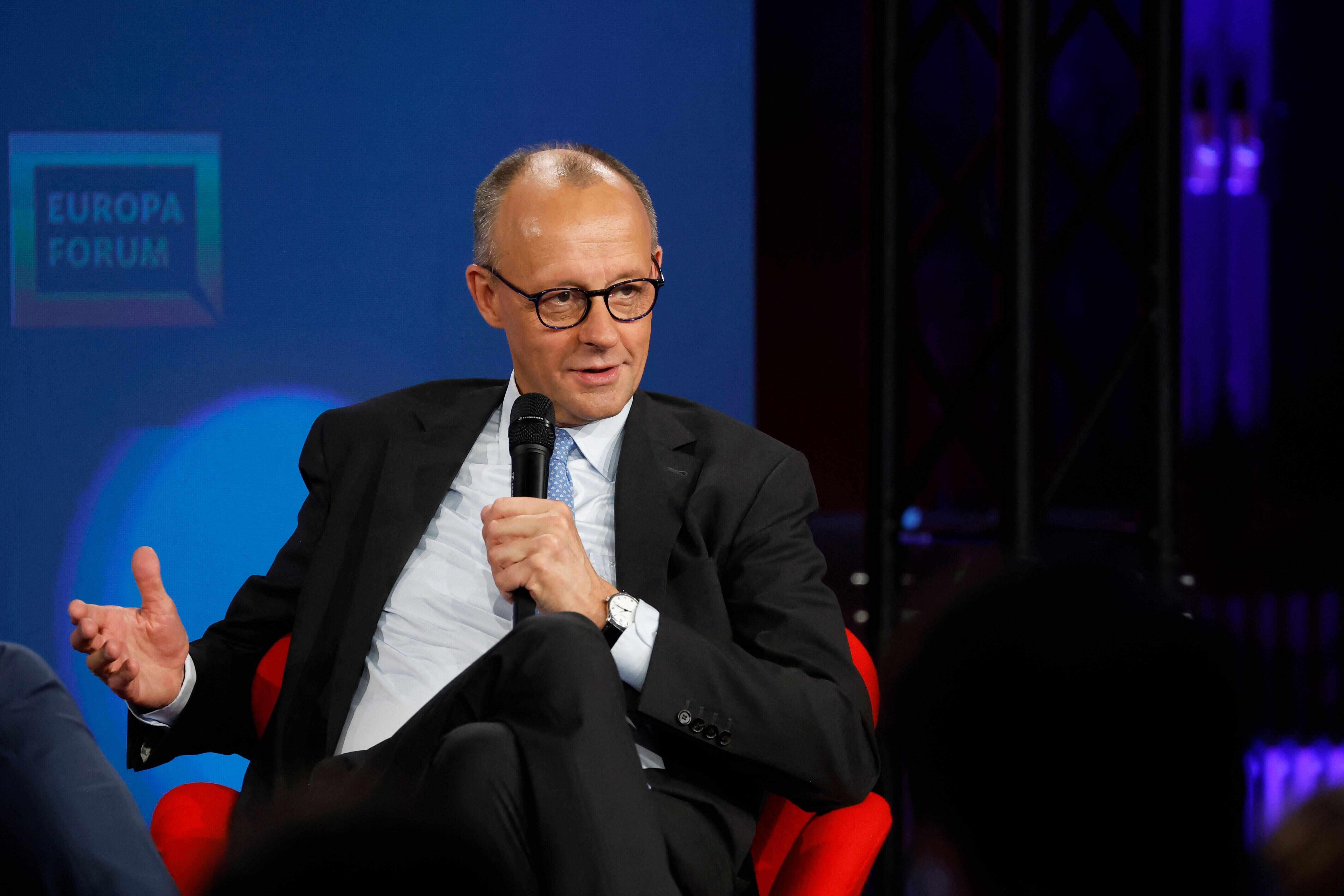
Russian President Vladimir Putin sees proposals for talks to end the fighting in Ukraine as a "sign of weakness", German Chancellor Friedrich Merz said Monday.
The Kremlin chief has responded to diplomatic efforts to bring the conflict to a close by prosecuting the war in Ukraine "harder than before", Merz told public broadcaster WDR.
"Putin obviously sees offers of talks as a sign of weakness," Merz said.
Since U.S. President Donald Trump returned to the White House this year, he has sought to push the two sides in the conflict toward direct talks at the highest level.
Trump last week suggested the Vatican as a possible host for a meeting, with the Italian government saying the leader of the Catholic Church was ready to organise talks.
But Moscow has cast doubt on the potential for the Holy See as a host.
Russian Foreign Minister Sergei Lavrov said it would be "inelegant" for the Catholic Church to mediate discussions between two principally Orthodox countries.
Merz said Monday that Ukraine's Western backers had sought to use all the diplomatic options available to them to initiate talks between Russia and Ukraine.
"After the last three weeks, no one can seriously accuse us of not having exhausted all available diplomatic means," Merz said.
Short of "raising the white flag", Ukraine's supporters had "done everything" they could, he said.
"If even an offer to meet at the Vatican does not get (Putin's) approval, then we must be prepared for this war to last longer than we all wish or can imagine."
Merz says 'no longer understands' Israel's goal in Gaza
Commenting on Israel's actions in Gaza, Merz said he no longer understands the Israeli army's objective, amid a stepped-up offensive in the Palestinian territory.
"Honestly speaking, I no longer understand what the Israeli army is now doing in the Gaza Strip, with what goal," he said.
"The way in which the civilian population has been affected, as has been increasingly the case in recent days, can no longer be justified by a fight against Hamas terrorism."
He said Berlin must be sparing in its public advice to Israel as with "no other country on earth", a reference to Germany's dark history of World War II and the Holocaust.
"The question is: How clearly do we voice criticism now, and for historical reasons I am more reserved," Merz said.
But he added that "when limits are crossed, when international humanitarian law is being violated... then the German chancellor must speak out too".
Merz said he wanted Germany to remain "Israel's most important partner in Europe".
"But the Israeli government must not do anything that its best friends are no longer willing to accept," he said.